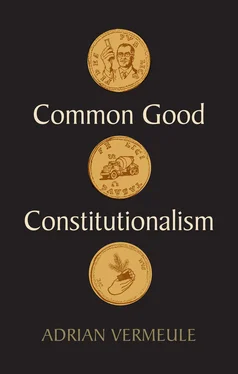1 Cover
2 Endorsements
3 Title Page
4 Copyright
5 Acknowledgments
6 Introduction: The Return of the Classical Legal Tradition Rational Ordering for the Common Good An Interpretive Argument The Common Good Defined The Role of Prudence Determination – Of the Constitution and Within the Constitution General and Particular Claims Courts and the Common Good Abuse of Power? The Common Good and “the Common Good” Competitors to the Classical Tradition Vices and Virtues Shibboleths Dispelled Plan of the Book Scope and Ambitions Notes
7 1 The Common Good Defined Antonyms of the Common Good The Positive Common Good in Politics and Law The Common Good in Law A Framework, Not a Blueprint Common Good Constitutionalism Moral Readings of the Constitution Who Decides? A Note on “Democracy” The Constitution of Risk and “Abuse of Power” Notes
8 2 The Classical Legal Tradition in America American Law as Classical Law: An Overview Lochner v. New York Riggs v. Palmer Curtiss-Wright and the Ius Gentium The Classical Tradition as Our Law Notes
9 3 Originalism as Illusion Context of Discovery Context of Justification Dworkin’s Critique Living Originalism Examples Hybrid Views Notes
10 4 Progressive Constitutionalism and Developing Constitutionalism The Liturgy of Progressive Constitutionalism: Obergefell and Its Aftermath Instrumentalized Law Developing Constitutionalism Newman and the Development of Doctrine A Model Opinion Human Rights Without Progressivism: A Model Declaration An Anti-Model Notes
11 5 Applications A. The Administrative State: The Living Voice of the Law B. Subsidiarity and Solidarity: “A Giant’s Strength” C. Rights and the Common Good Notes
12 Conclusion Notes
13 End User License Agreement
1 Cover
2 Table of Contents
3 Endorsement
4 Epigraph
5 Title Page
6 Copyright
7 Acknowledgments
8 Introduction: The Return of the Classical Legal Tradition
9 Begin Reading
10 Conclusion
11 Index
12 End User License Agreement
1 a
2 b
3 ii
4 iii
5 iv
6 vii
7 viii
8 1
9 2
10 3
11 4
12 5
13 6
14 7
15 8
16 9
17 10
18 11
19 12
20 13
21 14
22 15
23 16
24 17
25 18
26 19
27 20
28 21
29 22
30 23
31 24
32 25
33 26
34 27
35 28
36 29
37 30
38 31
39 32
40 33
41 34
42 35
43 36
44 37
45 38
46 39
47 40
48 41
49 42
50 43
51 44
52 45
53 46
54 47
55 48
56 49
57 50
58 51
59 52
60 53
61 54
62 55
63 56
64 57
65 58
66 59
67 60
68 61
69 62
70 63
71 64
72 65
73 66
74 67
75 68
76 69
77 70
78 71
79 72
80 73
81 74
82 75
83 76
84 77
85 78
86 79
87 80
88 81
89 82
90 83
91 84
92 85
93 86
94 87
95 88
96 89
97 90
98 91
99 92
100 93
101 94
102 95
103 96
104 97
105 98
106 99
107 100
108 101
109 102
110 103
111 104
112 105
113 106
114 107
115 108
116 109
117 110
118 111
119 112
120 113
121 114
122 115
123 116
124 117
125 118
126 119
127 120
128 121
129 122
130 123
131 124
132 125
133 126
134 127
135 128
136 129
137 130
138 131
139 132
140 133
141 134
142 135
143 136
144 137
145 138
146 139
147 140
148 141
149 142
150 143
151 144
152 145
153 146
154 147
155 148
156 149
157 150
158 151
159 152
160 153
161 154
162 155
163 156
164 157
165 158
166 159
167 160
168 161
169 162
170 163
171 164
172 165
173 166
174 167
175 168
176 169
177 170
178 171
179 172
180 173
181 174
182 175
183 176
184 177
185 178
186 179
187 180
188 181
189 182
190 183
191 184
192 230
193 231
194 232
195 233
196 234
197 235
198 236
199 237
200 238
201 239
202 240
203 241
204 242
“Elegant, insightful, magisterial: Adrian Vermeule has written an instant classic of scholarship, exposing the poverty of today’s prevailing legal theories, left and right, and pointing us to a better alternative – one as vibrant and radical as the Western tradition.”
Sohrab Ahmari, author of The Unbroken Thread and From Fire, by Water
“You are holding that rarest of books, one that will change minds, change the terms of debate, and change the future. Adrian Vermeule has written the most important and original book on constitutional theory for this generation. Future scholars, lawyers, and citizens will look back at this book for having sounded the death knell of the seemingly unassailable camps of conservative ‘originalism’ and progressive ‘living constitutionalism,’ revealing them to be exhausted sides of the same devalued liberal coin. More importantly, this book charts a new and better path – a common good constitutionalism grounded in the classical tradition but repurposed for the revitalization of a declining but redeemable republic.”
Patrick J. Deneen, University of Notre Dame, author of Why Liberalism Failed
“This is the most important book of American constitutional theory in many decades. Adrian Vermeule unearths the entirely forgotten classical legal tradition – a mix of Roman law, canon law, and civil law – which dominated judicial thinking from the founding until positivism began to consume constitutional law in the early twentieth century. He exposes the dominant originalist paradigm as an impoverished Johnny-come-lately to the constitutional scene. And he powerfully demonstrates how the classical legal tradition’s central idea – promotion of the common good – can inform contemporary public law thinking to promote community flourishing, both domestically and globally. Common Good Constitutionalism is a bolt from the blue that challenges conservative and progressive constitutional law paradigms alike. It is destined to infuriate, and to reorient.”
Jack Goldsmith, Learned Hand Professor of Law, Harvard University
“This bold and provocative book challenges the views on constitutional interpretation of both US conservatives and liberals, and reframes the debate by focusing on a substantive concept: the common good. With his characteristic originality and ability to weave the insights of different disciplines, Vermeule puts forward a thought-provoking account of the common good and its legal implications, one which will be of relevance well beyond American debates. Even those who disagree with it will have much to learn from this erudite engagement with one of the main concepts in political thought.”
Francisco J. Urbina, Pontificia Universidad Católica de Chile
[I]t is impossible that there can be a right which does not aim at the common good. Hence Cicero is correct when he says in the De inventione that laws are always to be interpreted for the benefit of the community. For if laws are not framed for the benefit of those who are subject to the law, they are laws in name only, but in reality they cannot be laws; for laws must bind men together for their mutual benefit. Dante Alighieri, De Monarchia (Prue Shaw, trans. and ed.)
Читать дальше












